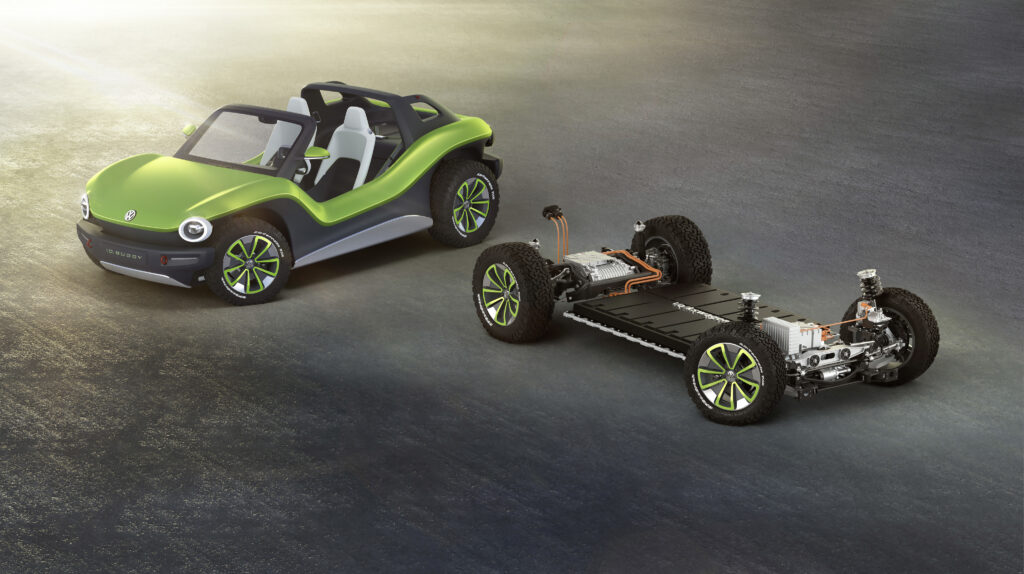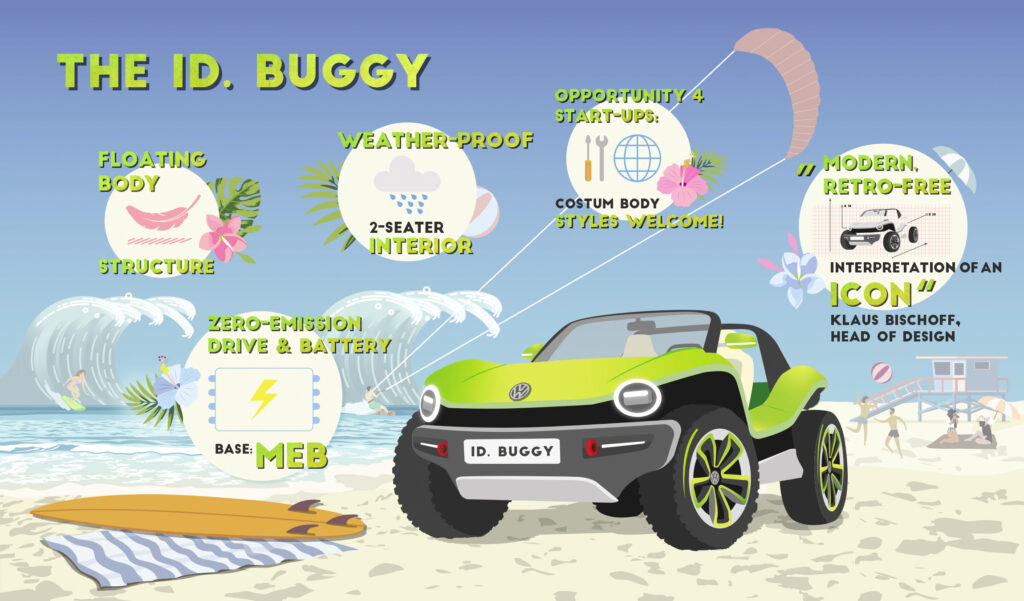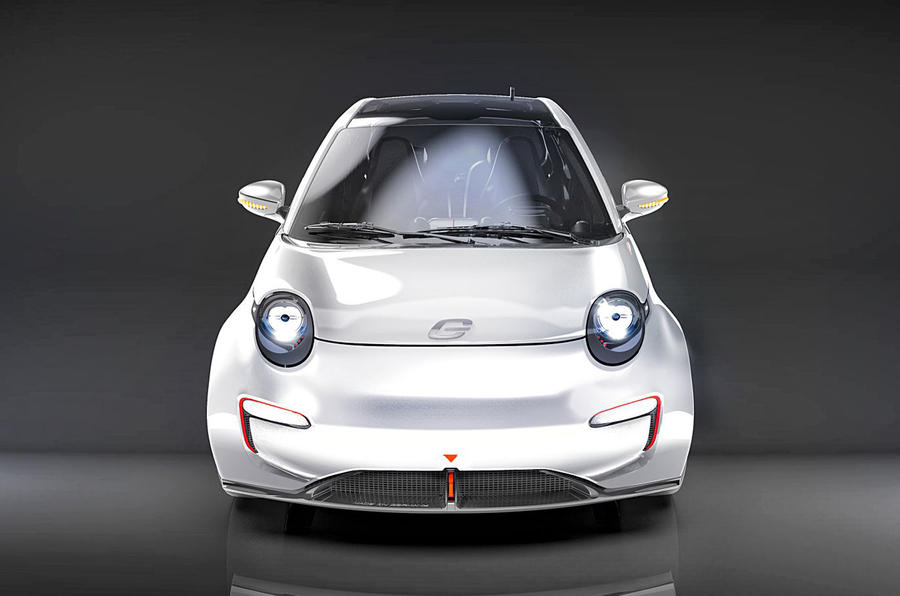Coachbuilding to return as VW Group licenses electric MEB platform
- PostedPublished 1 March 2019

Ever dreamed about launching your own vehicle brand? Well, the coming electrification revolution promises to make the process a whole lot easier.
For some time, automotive industry commentators have predicted that the ‘skateboard’ architecture on which many electric vehicles are based would provide a blank canvas for coachbuilders.
Early this year, Volkswagen Group announced that it would license its modular electric platform (MEB) to competitors.
This happened around the same time as two other major announcements: That VW and Ford would co-develop commercial vehicles and VW would expand its Chattanooga plant in Tennessee to produce MEB-based models for the North American market.
Understandably, this lead to speculation that the Ford would start making MEB-based EVs under a broadening of the existing commercial vehicle agreement. But VW said it wouldn’t be producing vehicles for anybody else at Chattanooga.
At the recent Geneva motor show, VW’s MEB licensing strategy came into sharp focus with the reveal of the retro ID Buggy concept, inspired by the Californian dune buggy industry that emerged in the 1960s, in which small manufacturers produced fibreglass open-topped bodies to sit over the chassis and engine of the Beetle.
The ID Buggy reveal was accompanied by the assertion by VW brand COO Ralf Brandstätter that “we want to open up the platform for third-party suppliers”.

The ID Buggy concept’s self-supporting composite body is manufactured from a mixture of aluminium, steel and plastic.
The upper body section can be detached from the MEB chassis, which VW says is “a clear signal to small series manufacturers and start-ups”.
“As in the past, Volkswagen is opening up to external producers … You can build the new-era, zero-emissions dune buggy based on this concept.
“In general, the MEB also has the potential to become the new technical basis for e-mobility for many automobile manufacturers.”
From a VASA perspective, the proliferation of MEB-based vehicles beyond the vast array of VW Group brands could spell an even broader and more rapid shift toward the mainstream adoption of R744 (carbon dioxide) air-conditioning systems.
As well as beach buggies, boutique coachbuilt vehicles and high-volume supply deals with other mass-production vehicle manufacturers, VW no doubt wants a slice of the emerging cottage industry in which parts are harvested from crashed Tesla, Nissan Leaf and other electric vehicles to create battery-powered versions of old Land Rovers, Porsches, Fiats and, of course, classic Volkswagens.
The huge uptake of electric vehicles in Scandinavia, where roads are icy for much of the year, has quickly been identified a rich source of parts to be used in these 21st Century ‘engine swaps’.
E.Go the first startup to license VW’s MEB
GERMAN automotive startup e.Go Mobile has been named the first company to license VW Group’s MEB electric vehicle architecture.
In an interview with Autocar during the Geneva motor show, e.Go chief executive Gunther Schuh said the MEB platform “will make us faster, more robust and cost-efficient”.
Based in Aachen, 75km west of Cologne, e.Go was founded in 2015 and is working on its tiny ‘Life’ four-seat electric car that will cost from €15,900 ($A24,425).

Development costs are minimised by using off-the-shelf parts, with an aluminium spaceframe and plastic panels.
A bigger version known as Life L will now sit on an entry level version of MEB, with e.Go’s distinctive lightweight bodywork.
Schuh told Autocar the 3350mm-long Life is too small to be fully based on MEB but will now share some components.
It is thought that e.Go will also engineer and build production versions of the ID Buggy concept on behalf of VW.
- CategoriesIn SightGlass
- Tagselectric vehicles, EV, SightGlass News Issue 16, Volkswagen


